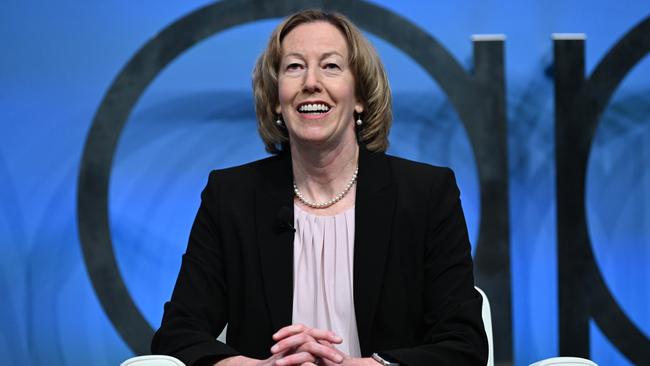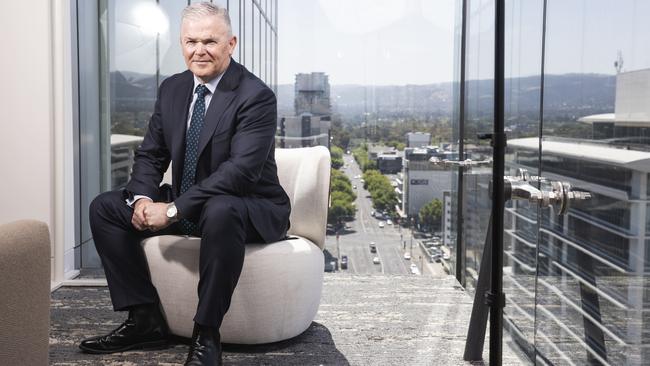Talk of tax on huge gas profits is blowing in the wind as big producers rake it in
But for the timing, Woodside’s Meg O’Neill and Kevin Gallagher at Santos can feel delighted at their performance in a year where both have completed huge takeovers of the BHP oil and gas business and Oil Search, respectively.
But these results will not sit at all comfortably with the politics of the day.
On Tuesday the Morgan Stanley research team, back from a week in North America, noted that there was quite some focus among investors Stateside on the potential for both a windfall tax and domestic gas reservation on Australia’s east coast.

“Since other countries have recently announced windfall taxes (like the UK), this came up in most meetings. We think there is a growing possibility of a windfall tax should prices remain elevated,” the report noted.
Big gas consistently argues it has to offset huge losses against the huge profits through the cycle: to skim off profits in good times is not only unfair, it risks investment uncertainty and is self-defeating.
But the billions in 2022 upside arrives just as the energy crisis hits households in a way that Australians have not experienced before.

Coal-fired power station shutdowns and Russian sanctions, not gas, caused this crisis. But squeezing the sector may look the most palatable option for Labor amid squeals from consumer groups, the Greens and manufacturing.
The latest ACCC report dials up the pressure. Credit Suisse’s Saul Kavonic says it appears intended to provide ammunition for the government to toughen up policy on gas intervention. Price, rather than availability of gas, remains the elephant in the room, he warns.
This will get ugly. Blaming the Coalition is no solution. It was state and federal Labor governments that cheered through the east coast LNG export sector without a domestic reservation.
A blink and a cough
Pharma giant Pfizer has blinked in its bid for Australian-listed biotech ResApp ahead of what is shaping up to be an interesting shareholder vote on August 19.
ResApp is working on a cough test for Covid-19 using a mobile phone. Pfizer has upped its offer from 14.6c a share to 20.8c a share. The bid almost doubles its first offer of 11.5c in April.
The problem for Pfizer is that while 75 per cent of votes on the day could well support the deal, a second required threshold that 50 per cent of the number of shareholders vote may be a bit more tricky.
ResApp has a large retail ownership and a feisty group of investors who are vocal on social media, including the former speaker in the federal parliament, Peter Slipper.
The hike in the bid is designed to nudge uninterested retail shareholders to shake off the apathy and vote “yes”.
Pfizer now has a clean message to shareholders: it is offering 20.8c a share, which is the midpoint of the range that independent expert BDO values the stock. Somewhat unusually, BDO even called it the “preferred” value.
Asked on Wednesday why he thought Pfizer had upped its bid, ResApp co-founder Brian Leedham said: “They see a nice fit for ResApp Health and they want to ensure that they see the deal get through. I’m extremely pleased Pfizer increased offer and hope that this gets the deal done.”
This is Pfizer’s first tilt at a listed Australian business. Its pockets are deep and if it really wants ResApp, it is hard to see that outcome not eventuating – whether on 19 August or in the months thereafter. The issue remains price.





The upcoming annual results for Woodside on August 11 and then Santos on August 17 will rain billions of dollars in bumper annual earnings.